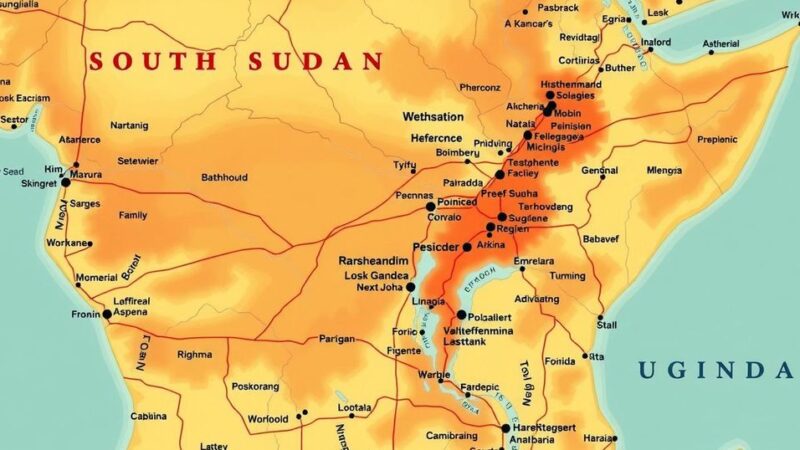The fall of Bashar al-Assad in Syria has sparked discussions among Yemenis about the future of the Houthi forces in Yemen. Reactions vary; some view Assad’s defeat as a signal for change while others feel a personal loss. The Houthis remain a key power linked to Iranian influence, but with regional dynamics shifting, there is cautious optimism among those opposed to the Houthis regarding potential changes in control. Still, the prospects of further violence loom large in the already ravaged country.
The fall of Syrian President Bashar al-Assad has prompted reflections among Yemenis regarding the fate of the Iran-backed Houthis in Yemen. As reactions vary from elation to despair about Assad’s defeat, many Yemenis speculate about potential shifts in power dynamics within their own country. The Houthis, who seized control of Sana’a in 2014, represent a significant element of Iran’s regional influence, an axis that has been critically challenged following Assad’s recent downfall. Among the pro-Houthi supporters, there is a deep sense of loss, with many viewing Assad’s regime as essential for their cause against perceived Western adversaries.
Conversely, opponents of the Houthis express optimism, interpreting Assad’s failure as a sign that similar fates may befall the Houthis. Figures such as Faisal Mohammed articulate this sentiment, asserting, “Finally, the Syrian people have justice,” believing it sends a message of hope against oppression. With the Houthis experiencing military and political challenges, there is growing belief among many Yemenis that their regime could face increasing resistance propelled by regional developments and intensified anti-Houthi sentiment.
Yet, the fall of a dictator does not guarantee subsequent peace, as cautioned by individuals like Yunis Saleh, who emphasize the potential for further violence without a comprehensive resolution to Yemen’s ongoing crisis. Given the significant humanitarian catastrophe engulfing Yemen, any emerging conflict would exacerbate the plight of millions who are already suffering.
The Houthis’ military capabilities remain potent, commanding considerable local support. While some express confidence that a coordinated effort could dismantle the Houthi regime, the complex territorial landscape makes any offensive against them difficult. As political tensions mount, observers are left apprehensive of an imminent eruption in hostilities, with regional actors poised to influence the situation further. The Yemeni populace now faces a critical juncture: whether a shift in dynamics can restore stability to their beleaguered nation, or whether it will further entrench them in conflict.
The political situation in Yemen is deeply interconnected with the regional power struggles involving Iran and its allies, as well as Saudi Arabia and its supporters. The Houthis have held sway in northern Yemen since 2014, leading to an ongoing conflict that has resulted in severe humanitarian crises, affecting millions. The recent developments in Syria, particularly the fall of Bashar al-Assad, are being closely scrutinized by Yemenis, who see parallels in their own quest for political change and stability. As reactions to these shifts unfold, there is a palpable tension regarding the potential resurgence of violence in Yemen, coupled with hopes for political transformation. Understanding these dynamics is crucial for comprehending the future trajectory of Yemen amid its multifaceted conflicts.
In conclusion, the recent downfall of Bashar al-Assad has stirred significant reflection among Yemenis regarding the future of the Houthis and the broader conflict within Yemen. While some view this as a potential empowerment for anti-Houthi forces, there remains a stark reminder that the removal of oppressive regimes does not automatically lead to peace. The deeply entrenched divisions within Yemen, alongside the substantial humanitarian crises, underscore the complexity of navigating toward a peaceful resolution. As the Yemeni populace watches closely, the impact of regional shifts remains to be seen, with implications for both governance and national stability.
Original Source: www.aljazeera.com






